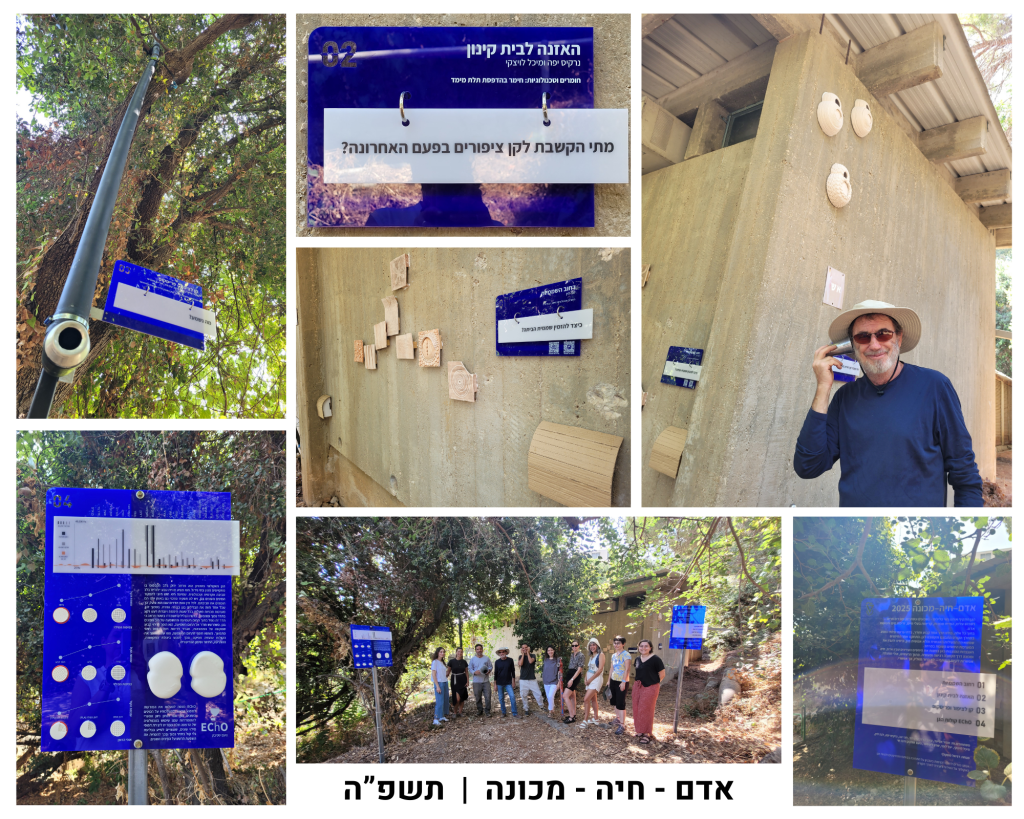Human • Animal • Machine – The Course Connecting the Technion to Living Nature
For the past eight years, the Faculty of Architecture and Town Planning at the Technion has offered the unique course “Human–Animal–Machine”, which explores the intersections between wildlife and human environments. This year (2024–25), with the support of the Technion Sustainability Frontier and in collaboration with the Technion Ecological Garden, students focused on the biodiversity within the garden, aiming to enrich and deepen the connection between the Technion community and local ecological systems.
The students learned about local wildlife through tracking excursions and in-depth observation, and then designed full-scale interventions integrated into the garden to enhance its ecological carrying capacity. The projects combine creative thinking, research, and engineering, while placing the relationship between humans, animals, and technology at the center.
This year’s course outputs – now on display and open for visitors to experience in the Ecological Garden – include:
-
“Gecko Street” – a unique shelter system that restores a safe habitat for geckos.
-
3D-printed nesting boxes for small birds, equipped with listening tubes that allow visitors to hear the sounds of the nest from a distance.
-
A tree-canopy periscope, enabling focused listening to the high sounds in the garden’s trees.
-
Low-frequency noise-canceling headphones, allowing visitors to enjoy only the natural sounds of the garden.
Open invitation:
The Technion community is welcome to visit the Ecological Garden, explore these unique points of interaction, and experience firsthand the creations developed by the students – a journey that blends aesthetics, innovation, and a deep love of nature.
Special thanks to the course instructor – Dr. Daniel Metcalfe,
and to all the students who invested thought, creativity, and passion for nature in their projects: Amir Eliad, Einav Hadani, Eden Khir, Hagai Yegev, Narkis Yafe, Lena Levin, Michal Lewitzki, Yael Lumi, Sharon Libster, Noam Spivak, and Dana Shai.




